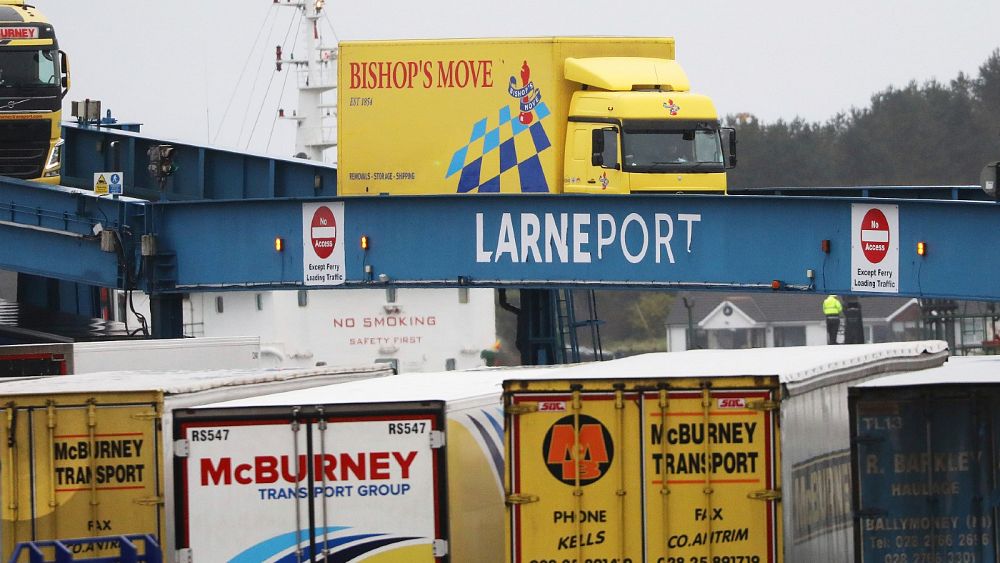
The Northern Irish Minister of Agriculture ordered his services to stop post-Brexit controls on foodstuffs at midnight, an order whose practical consequences and legality are being questioned in the midst of negotiations between London and Brussels.
The effective entry into force of Brexit a year ago led to the introduction of controls on goods arriving in Northern Ireland from Great Britain.
Designed to prevent the re-establishment of a physical border with neighbouring Ireland that would undermine the peace agreed in 1998, the Northern Ireland Protocol keeps the British province in the European single market and customs union.
Northern Irish Unionists, including Agriculture Minister Edwin Poots of the ultra-conservative DUP party, denounce the controls as a border in the Irish Sea that threatens the British province’s place in the UK.
Poots has ordered the head of his administration to cease food controls at midnight on Wednesday at ports in the British province. It is unclear whether or not this order will be followed, with some within the DUP arguing that the administration is under a legal obligation to carry them out.
Poots has said he has taken “legal advice” on the matter and argues that the checks require the approval of the local executive, which is lacking.
Irish Foreign Minister Simon Coveney denounced a “violation of international law”. “This is playing politics with legal obligations,” he told senators in Dublin.
Northern Ireland’s Deputy First Minister Michelle O’Neill, of the left-wing Republican party Sinn Fein, denounced on Twitter a move by the DUP to “illegally interfere with national and international law”.
This comes three months before crucial elections in May, when Sinn Fein, which favours a referendum on the reunification of the island within five years, is leading in the polls.
The controversial Northern Ireland Protocol is currently the subject of intense negotiations. British Foreign Secretary Liz Truss is due to hold talks with European Commission Vice-President Maros Sefcovic on Thursday in a call.
Under pressure from unionists who have demanded progress by 21 February, the date of the next meeting of the joint UK-EU committee on the implementation of the Brexit agreement, the British diplomatic chief posted last week during a trip to Northern Ireland to make “significant progress” quickly.